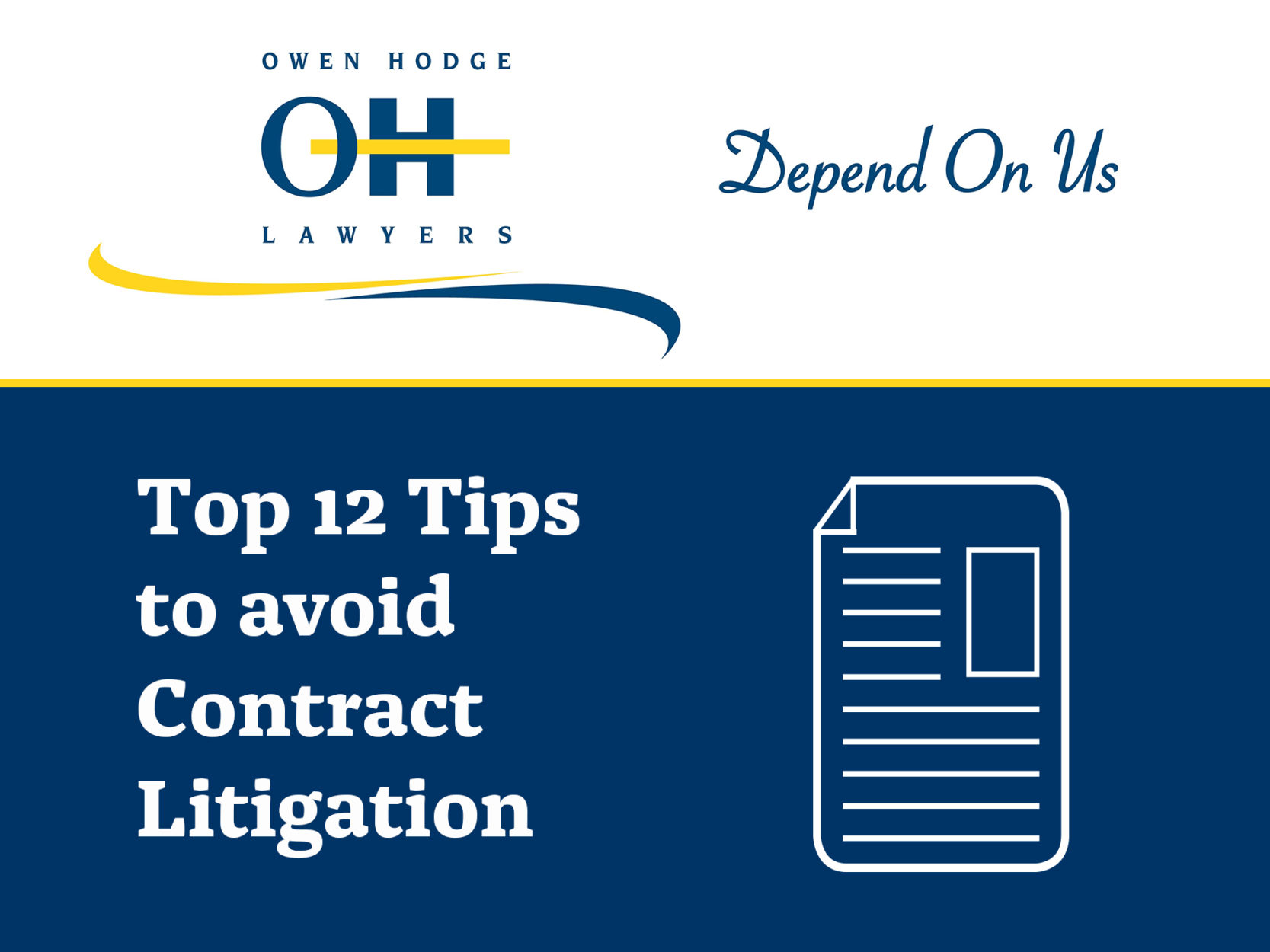
Most lawyers agree that the best way to succeed at contract litigation is to avoid having a lawsuit in the first place. Contract litigation lawsuits are expensive and the outcome is uncertain. Avoiding disputes can be good for your bottom line and, perhaps more importantly, may help preserve important business relationships and build your reputation.
Following are a dozen tips to minimise any litigation risks before you sign a contract:
- Get it in writing. In theory not all contracts need to be in writing to be enforceable, but from a practical standpoint, a written record of the agreement can help prevent disputes about the details. Remember that this applies to any post-signing modifications, as well.
- Think of modifications as the rule rather than the exception and set out a formal procedure to agree to changes. Be sure to detail any additional charges that will be made for alterations. In some industries, it may make sense to include escalation and de-escalation clauses and link these to market parameters like foreign exchange and commodity indices. Also consider the risk of delay in completion and specify the remedy either party may have.
- Consider the use of standardised language. In some industries, certain terms and clauses are expected and their meaning well understood. Even where that is not true, a course of dealing between two parties or within a particular business can be useful in preventing any misunderstanding.
- Understand the nature of any warranties or representations that may be in the contract, including those that are implied as a matter of law.
- Unless unavoidable, don’t start work until the contract is signed.
- Centralise the retention and compliance monitoring of contractual agreements. Nothing is worse than a contract the existence or terms of which are unknown to affected parties. Centralised compliance monitoring can also bring to light provisions which are burdensome or expensive to meet, so that they may be avoided in the future. Centralising this function may also make it easier to preserve evidence in the event of a dispute.
- As a related matter, clearly delineate who is responsible for project management and on what timeline. Communicate, communicate, communicate, especially as contingencies arise.
- Know who you’re dealing with. Is the other party financially sound? Do they have a history of contract disputes or nonperformance? A little due diligence can spare a lot of headache.
- Try to define what constitutes acceptable performance with reference to objective factors or the standards established by an industry organisation. If a specification is not clearly defined, parties risk a process of clarification that can go on for years and lead to serious frustrations and problems on both sides.
- Understand exactly what insurance will cover. Study any policy and do not allow anything in the contract that might later conflict with that insurance coverage. Consider insisting that any indemnity provisions be secured with insurance or an escrow fund.
- Consider requiring recourse to alternative dispute resolution mechanisms, such as mediation or arbitration before or in the place of litigation. Either is cheaper than a lawsuit.
- Negotiate for a reasonable limitation of liability clause or liquidated damages, if possible.
Above all, give legal counsel an opportunity to review your contractual agreements before you sign. This is not the place to save money. If you have questions about how to minimise litigation risks before you sign a contract, please call the attorneys at Owen Hodge Lawyers at 1800 770 780 to schedule a consultation.
![]()
